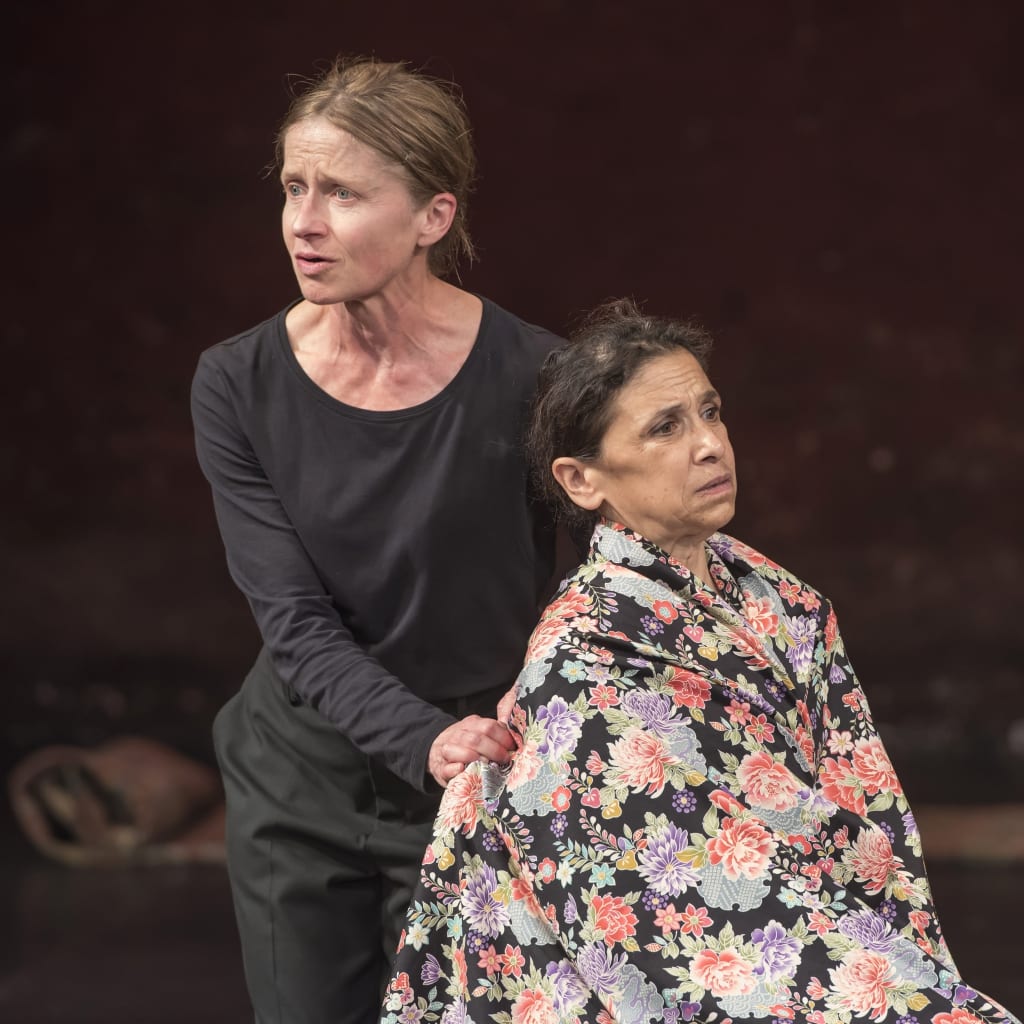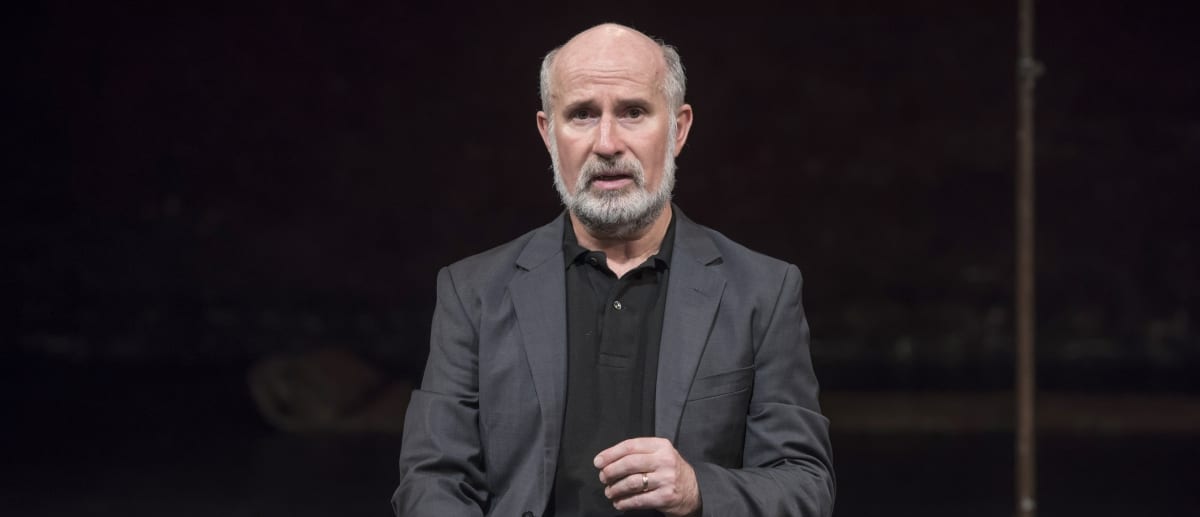If you are looking for a spectacular show, go on your way. Why? presents a stripped-down (but not austere) staging, ready to receive the actor’s word. WHY MAKE THEATRE? How? For who? To answer those questions, a refined scenery: only 3 chairs, 3 clothes rail and a large carpet on the beautiful stage of the Bouffes du Nord, and, mostly, three actors talking about their own art. The play opens on a remarkable parable, which humorously associates the seventh day of the Creation to the birth of theatre because… human beings got bored. The tone is set: the fourth wall does not exist anymore and the actors are placed in a frontal relationship with the audience. They do not hesitate to solicit the spectators, to encourage them to participate to a training, to put some of them on the stage. After this brilliant prologue, the rest of the play reveals some actors not less brilliant. They illustrate major theories of the 20th century by setting exercises, warm-ups and improvisations (as Stanislavsky could mainly recommend it), placing us thus at the core of the actor’s work. Marcello Magni turns out there to be a very skillful and comic actor. The great Kathryn Hunter is still fascinating, when Hayley Carmichael shows a disarming sincerity. But the subject of the play seems unfortunately shifting. From the fundamental question: “Why make theatre?”, you move to a biography hardly staged of Meyerhold, the one who affirmed: “THEATRE IS A VERY DANGEROUS WEAPON.” The tribute paid to the Russian stage director is for sure touching, and Peter Brook and Marie-Hélène Estienne perfectly respect Meyerhold’s desire to make theatre accessible to all (and especially here to the younger generations) by generalizing theatre history. But there, I almost wonder…where is drama? The purpose becomes too much didactic, if not educational. The performance gets explanatory – the portraits of the persons mentioned are even projected in the back stage, like some slides in an academic course. In this chronological and conventional form, the political dimension of Meyerhold’s art and, more than that, the necessity to make theatre at all times, almost disappear. It only rises again a few times: for instance when the actors describe the brutal murder of Zinaïda Reich, the director’s wife, who had her eyes gouged out because she dared acting every evening in a country ruled by Stalin. But despite this great scenery (which seems very close to the “empty space” theorised by Brook) and such a clever beginning, I am left hungry for more.
A brief summary in French :
En mettant en scène trois brillants acteurs dans un décor épuré, Peter Brook et Marie-Hélène Estienne nous invitent à revenir aux fondamentaux. Pourquoi fait-on du théâtre ? Comment et pour qui ? On aurait pu craindre un propos complaisant uniquement destiné aux gens de
théâtre. Il n’en est rien : Why? s’efforce au contraire de vulgariser l’histoire du théâtre du début du XXème siècle, notamment en nous racontant la vie du metteur en scène russe Meyerhold… quitte à tomber dans un didactisme un peu gênant. Cela nous fait perdre de vue la portée politique de son œuvre et de sa vie et, plus encore malheureusement, la nécessité de faire du théâtre, il y a un siècle comme aujourd’hui.


